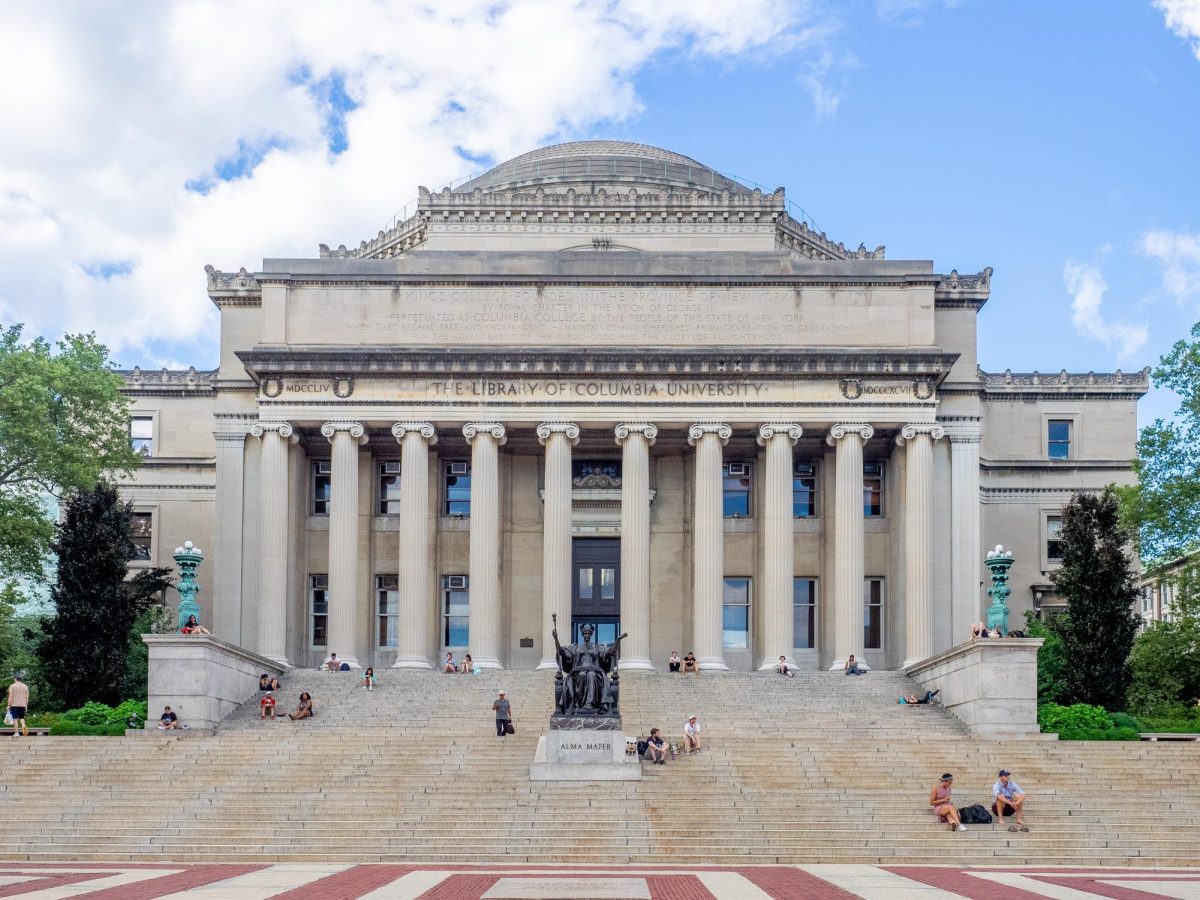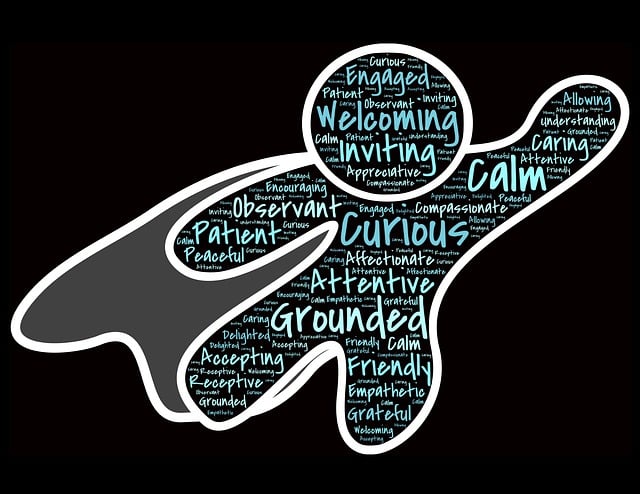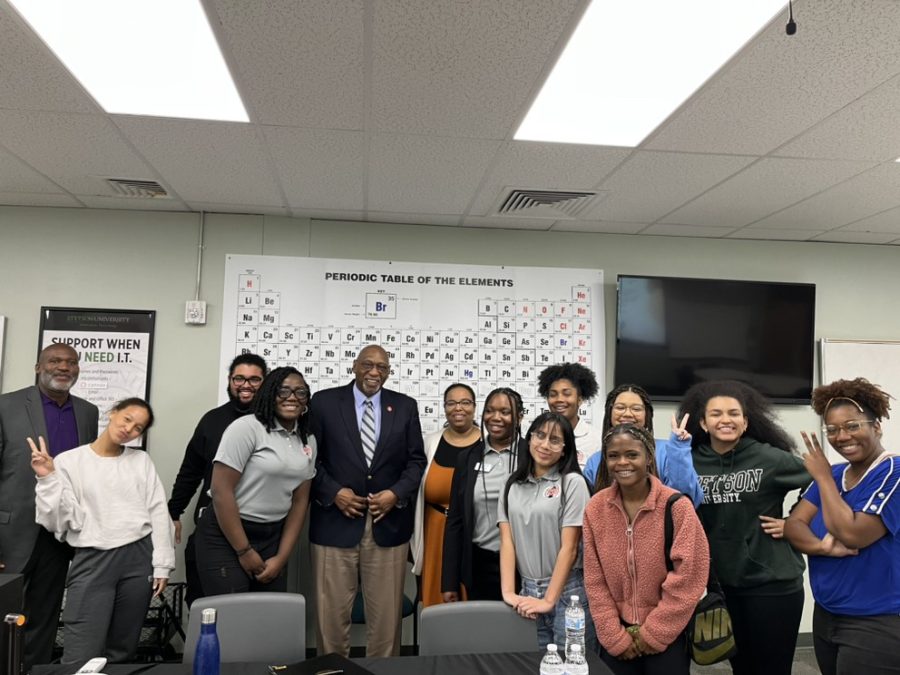In 1863, Sam Houston wrote a letter from Texas expressing his faith in God after taking down General Santa Anna’s army. 161 years later, Dr. Sam Houston, a religion professor at Stetson, looks at what led us to modern-day Texas through the lens of religious ethics. Acknowledging the rise in xenophobia among Americans, he attributes part of the alienation to assimilation. A term Houston understands as inferring,“there’s…one way of being an American, culturally, and to be a proper American, you should adopt that…and that often meant Christian.” However, reflecting on how secular powers often tend to demonize religion. Houston advises against downplaying its’ unifying power. “They see religion…only as something which divides,” Houston shared. “ I think it’s unwise to take that approach…especially when most Americans… belong to some faith tradition.” This all-or-nothing approach highlights the hurdle theorists face when examining Christianity’s role in the United States (U.S.), partly because of apprehension to see it as a political community in addition to a religious practice.
Deep Stories
In conversation, Houston shared that theorist Benedict Anderson “thinks about nation as an imagined political community.” However, for most American citizens the word “politics” evokes feelings of allegiance to a specific political party. The U.S. is pulled between two (or more) conflicting deep stories.
Martin Blackwell, a visiting professor of History with expertise in Russia & East European Studies (SPREES), also shared opinions on the Christian roots of the U.S. One piece of literature informing his overarching views is entitled The Flag and the Cross. Authors Philip Gorski and Samuel L. Perry present their understanding of America’s “deep story…told and retold so many times and across so many generations that they feel natural and true. Even, and perhaps especially when they are at odds with history…more precisely, it is a mythological version of history.” This deep story becomes not only an understanding of the past but a political vision and unconscious desire for the future.
The authors speak on the belief that traditional Christians founded the U.S. and its documents on Christian principles for Christians, ie. Christian nationalism. Additionally, in this deep story, the nation is blessed by God with ordained purpose but “these blessings are threatened by cultural degradation from un-American influences both inside and outside our borders.” However, this is only one perspective.
“E pluribus unum”
Michael A. Denner, another Stetson professor in the SPREES department says “the West, forget[s] how narrow our worldview is.” In the West, as Denner calls it, there is a tendency to see the practice of Christianity as uniform, made easier by internal delineation of variable practice, for example, Catholicism. However, The Flag and the Cross hypothesizes corporate America invented Christian America to fight the Soviet Union’s “godless” communism, evidenced by the 1956 introduction of “In God We Trust” as the national motto. Since then, Christianity has become America’s dominant religion. According to PRRI’s 2023 survey, Christianity is not more common amongst any particular racial group. All Christian nationalists surveyed were more likely to support political violence and have a more favorable opinion of President Trump than former President, Joe Biden. They also abstain from regular interactions with people of different religions.
Capitalist Democracy Sanctified as Promised Land
American Christianity is influenced by the larger social order. Denner shared reflectively, “In sociology, they use an acronym…It’s [W.E.I.R.D]…Western, Educated, Industrialized, I always forget what the R stands for, and D is Democratic.” The R stands for rich and while the U.S. is rich, the wealth is disproportionately distributed. Case in point, the inauguration of Donald Trump, featuring men and women suited up in Pearce Bespoke and adorned in custom velvet gowns from Oscar de laRenta, the event flaunted a tax bracket only attainable to 0.0002% of Americans. Finances are not what Americans have in common with Trump. If the imagined political community of Christian nationalism connects the nation and their deep story tells them they have an ordained purpose, perhaps in Trump they found a prophet who extends the biblical narrative.
Belonging, Sacrifice and Invasion
Alarm over a “threat to democracy” has been spread by both parties in recent elections. While many Americans have expressed exhaustion over politicians’ broken campaign promises, 2016 Trump voters took action, voting for a candidate they felt better represented “the middle-class American.” This election cycle, a grazed ear, and the accompanying spilled blood tugged on traditional Puritan themes of persecution. Supporters of the “fallen” candidate partook in an act of, quoting The Flag and The Cross, “righteous violence to defend their freedom and maintain social and racial order.” The 34 felony counts raised against Trump only stood to revitalize the urgency of their calling. Despite arms sales increasing by 29% under his administration, then-President Joe Biden condemned “political violence” against Trump. Despite its irony, it was a rare moment of unity across parties.
Pluralism
If political parties within the U.S. can be united, it is worth considering a new outlook on what it means to be a nation. Although Houston does not believe the U.S. should emphasize any one religion, he does offer advice: “If we say that national identity has to do with the affirmation…of freedom and liberty and justice…[any]one can affirm those values. No matter what cultural background you have, no matter what religious background you have.” He is painting a picture of a pluralistic nation, one where communities of different backgrounds are affirmed. The idea of the country culturally degrading, whether your deep story tells you it is becoming “too liberal” or “too conservative”, “too Christian” or “too Muslim” is to admit America is not the “Land of the Free.” It is unequivocally false that America was built to be an inclusive nation, evidenced by our history of colonialism and persistent inclination to delineate ourselves from other world actors through ethnic-traditionalism. However, this does not relinquish culpability for actions Americans, 46th President, Joe Biden included, would otherwise label “political violence” if perpetrated against us. More simply, while we all deserve a sense of belonging, fear-mongering has failed to culturally preserve or unite the nation. Ideas on how to bridge this divide are the focus of Dr. Houston’s course “God and Country?” and there is no simple answer.









